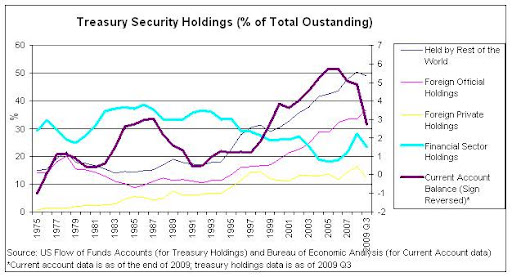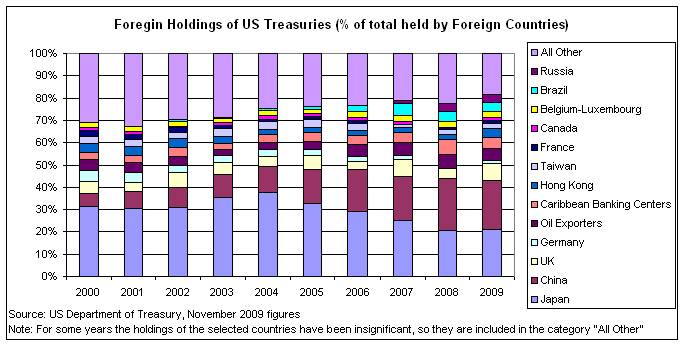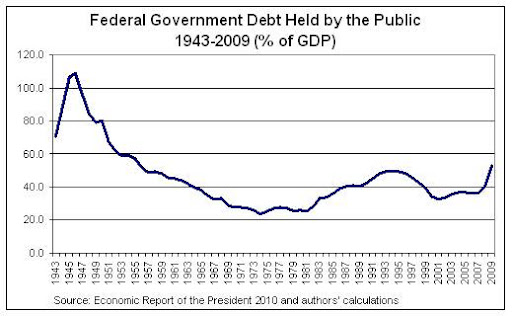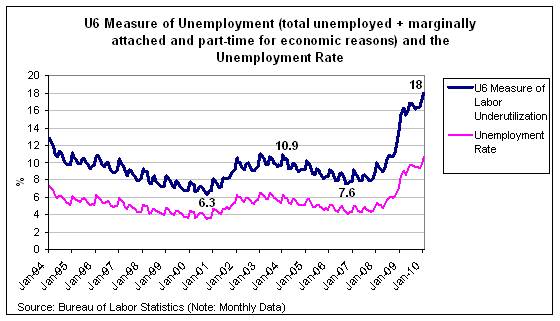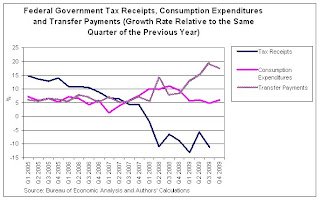By Michael Hudson
The “Greek bailout” should have been called what it is: a TARP for German and other European bankers and global currency speculators. The money is being provided by other governments (mainly the German Treasury, cutting back its domestic spending) into a kind of escrow account for the Greek government to pay foreign bondholders who bought up these securities at plunging prices over the past few weeks. They will make a killing, as will buyers of hundreds of billions of dollars of credit-default swaps on the Greek government bonds, speculators in euro-swaps and other casino-capitalist gamblers. (Parties on the losing side of these swaps now will need to be bailed out as well, and so on ad infinitum.)
This windfall is to be paid by taxpayers – ultimately those of Greece (in effect labor, because the wealthy have been untaxed) – to reimburse Euro-governments, the IMF and even the U.S. Treasury for its commitment to predatory finance. The payment to bondholders is to be used as an excuse to slash Greek public services, pensions and other government spending. It will be a model for other countries to impose similar economic austerity as governments run up budget deficits in the face of falling tax collections from the financial sector being enriched by the translation of junk economics into international policy. So the bankers for their part will have little trouble meeting their bonus forecasts this year. And by the time the whole system collapses, they will have spent the money on hard assets of their own.
Financial lobbyists are using the Greek crisis as an object lesson to warn about the need to cut back public spending on Social Security and Medicare. This is the opposite of what the Greek demonstrators are demanding: to reverse the global tax shift off property and finance onto labor, and to give labor’s financial claims for retirement pensions priority over claims by the banks to get fully paid on hundreds of billions of dollars of recklessly bad loans recently reduced to junk status.
Bank lobbyists know that the financial game is over. They are playing for the short run. The financial sector’s aim is to take as much bailout money as it can and run, with large enough annual bonuses to lord it over the rest of society after the Clean Slate finally arrives. Less public spending on social programs will leave more bailout money to pay the banks for their exponentially rising bad debts that cannot possibly be paid in the end. It is inevitable that loans and bonds will default in the usual convulsion of bankruptcy.
Greek labor is not yet so pessimistic as to give up the fight. What it recognizes (that its American counterparts do not) is that somebody will control the government. If labor – the demos – loses its spirit, power will be relinquished to foreign creditors to dictate public policy by default. And the more the bankers’ interest is served, the worse and more debt-burdened the economy will become. Their gain is bought at the price of domestic austerity. Scheduled payouts by Greek pension funds and government social spending programs must be to replenish German and other European bank capital.
This worldview already has been delivered to Europe’s northernmost periphery, where it has elicited a fiscal masochism that banks hope to see in Greece. Having fallen on their swords, Baltic governments would be jealous and even resentful to see Greece rescue its economy where they themselves failed to repudiate arrogant creditor demands. “Seen from the eastern rim of the European Union, the looming austerity drive in crisis-afflicted Greece reads like old news,” writes Nina Kolyako. “For almost two years, the Baltic states of Lithuania, Latvia and Estonia have brought in repeated draconian measures, slashing public spending and hiking taxes to try to dig themselves out of a hole. ‘We learned the lessons very painfully, heavily and effectively, that you need to look after the fiscal situation very carefully,’ Lithuanian Prime Minister Andrius Kubilius told AFP in a recent interview. ‘We understood very clearly that fiscal consolidation was the only way for us to survive.'”
Capitulating in a classic Stockholm syndrome (literally to Swedish banks in this case), Lithuania’s government dutifully tightened the screws so much that GDP plunged by over 17 percent. A similar plunge occurred in Latvia. The Baltics have slashed public-sector employment and wages, imposing poverty rather than the Western European levels of prosperity (and progressive taxation to foster a middle class) that was promised after the Baltics achieved their independence from Russia in 1991.
After Latvia’s parliament imposed austerity in December 2008, popular protest in January brought down the government (as a similar protest did in Iceland). But the result was merely another neoliberal “occupation regime” run on behalf of foreign banking interests.
So what is unfolding is a Social War on a global scale – not the class war envisioned in the 19th century, but a war of finance against entire economies, against industry, real estate and governments as well as against labor. It is happening in the usual slow motion in which great historical transitions occur. But as in military conflicts, each battle seems frenetic and spurs wild zigzagging on the world’s stock and bond exchanges and currency markets.
All this is great news for computer program traders. The average commitment of funds lasts only a few seconds these days as financial markets are buffeted up and down by vast credit waves blown by the storms sweeping today’s financially overheating planet.
The coming economic dystopia
The Greek crisis shows how far the “European idea” has shifted from 1957 when the six-member European Economic Community (EEC) was formed. At U.S. prodding, Britain and Scandinavia created the rival seven-member European Free Trade Association (EFTA). Even so, the promise of Euroland – at least before Maastricht and Lisbon – was to elevate labor to middle-class prosperity, not to impose IMF-type austerity programs of the sort that devastated Third World countries. The message to indebted economies is stark: “Drop dead.” And they are obediently committing economic hara kiri (emulating Japan in the 1985 Plaza Accords) to endorse the Washington Consensus – the class war of finance against labor and industry.
Political, social, fiscal and economic power is being transferred to the EU bureaucracy and its financial controllers in the European Central Bank (ECB) and the IMF, whose austerity plans and related anti-labor programs direct governments to sell off the public domain, land and subsoil wealth, public enterprises, and to commit future tax revenues to pay creditor nations. This policy already has been imposed on “New Europe” (the post-Soviet economies and Iceland) since autumn 2008. It is now to be imposed on the PIIGS (Portugal, Ireland, Italy, Greece and Spain). No wonder there are riots!
For observers who missed Iceland and Latvia last year, Greece is the newest and so far the largest battlefield. At least Iceland and the Baltics have the option of re-denominating loans in their own currency, writing down their foreign debts at will and taxing property to recapture for the government the revenue that has been pledged to foreign bankers. But Greece is locked into a European currency union, run by unelected financial officials who have inverted the historical meaning of democracy. Instead of the economy’s most important sector – finance – being subject to electoral politics, central banks (the designated lobbyists for commercial and investment bankers) have been made independent of political checks and balances.
In truly Orwellian fashion, right-wingers in Europe and the United States (such as Fed Chairman Ben Bernanke) call this the “hallmark of democracy.” It actually is the stamp of oligarchy, stripping away control over the economy’s credit allocation – and hence, forward planning – while giving high finance a stranglehold over public spending programs.
Iceland, Latvia and now Greece are the opening shots in the resulting global campaign to roll back the great democratic reform program of the 19th century and the Progressive Era: taxation of land and the “unearned increment” of price gains for real estate, stocks and bonds, and subordination of the financial sector to the needs of economic growth under democratic direction. This doctrine was still being followed by the post-1945 era of progressive taxation that saw the 20th century’s greatest rise in living standards and economic growth. But most countries have reversed the fiscal trend since 1980. Tax collectors have “freed” income from public obligation only to see it pledged to banks for higher loans to bid up property prices.
Houses, office buildings and entire companies are worth whatever banks will lend. So populations (and corporate raiders) have responded to the pro-financial tax shift by borrowing to buy houses (and companies) before prices recede even further out of reach. And taxes on labor now are about to be jacked up to pay off the public debts resulting from the asset-price inflation and financial wreckage that property tax cuts have helped cause. This is the cause of national debts. Governments have run into debt as a result of un-taxing the wealthy in general, not just real estate.
Following Western governments in shifting the fiscal burden off property and finance onto labor over the past few decades, Greece’s government is politically unable or unwilling to tax the wealthy, or even well-to-do professionals. But neoliberals blame it and other debtor governments for not selling off enough public land and enterprises to make up the gap. Tax-deductible interest charges make privatizations on credit tax-exempt, so governments will lose the user fees they formerly received – while populations pay higher “tollbooth” charges for hitherto public services.
Just as the U.S. Government has done, it has issued bonds to finance the deficit resulting from these tax cuts. The buyers of these bonds (mainly German banks) are demanding that Greek labor (and now German taxpayers as well) should bear the burden of tax shortfalls. German and other European banks and bondholders are to be repaid at the social cost of drastic cutbacks in pensions and social spending – and if possible, by more privatization sell-offs at distress prices.
The riots in Greece have erupted because labor understands what most journalistic reporting shies away from confronting. Growth in real wages has slowed (and has stopped cold in the United States since about 1979). Home ownership has been achieved at the cost of new buyers taking on a lifetime of mortgage debt. And the post-Soviet economies won their political freedom from Russia, only to find themselves insolvent today, dependent on IMF and EU direction of their economies to obtain the loans to pay their foreign bankers that have loaded down their housing, public enterprises, industry and families with debt.
Bondholders and financial speculators have ganged up to demand EU, IMF and US support for them to take their gains before the financial game crashes. The grab can be done most quickly by shrinking economies under IMF-style austerity plans. Unemployment is to rise while driving economies even further into debt – not only public debt as shrinking markets lead to falling tax revenue, but also foreign debt as import dependency increases.
Creditors are to be paid by letting them appropriate the economic surplus, in the form of debt service at the expense of new capital investment, infrastructure spending, public social spending and rising living standards. Economically, the Greek uprising is a revolt against the policy of sacrificing prosperity to pay foreign creditors in this way.
At the political level the fight is to save Greece from being turned into an anti-state. The classical definition of a “state” or government is the ability to levy taxes and issue money. But Greece has relinquished its fiscal authority to the EU and IMF, which are telling it to violate what political theorists list as the Prime Directive of any government: to act in the long-term national interest. The Greek government is being directed to act on behalf of bank capital, and indeed, that of foreign countries to engage in asset stripping, not to promote long-term growth.
At issue is whether nations will be run by creditors or by popular aims to reap the benefits of economic growth. An oligarchic push for IMF-EU loans to bail out foreign banks and bond speculators at the expense of Greek labor (the intended taxpayers of the future) aims at making labor rather than finance capital take the loss of government arrears resulting from un-taxing wealth. The aim is to enable foreign banks to avoid having to pay the price for acting as enablers in draining the domestic market. Government policy is to be taken out of the hands of voters and subordinated to the IMF and EU acting as instruments of international finance.
This creates a state of affairs in which neither Greece nor the EC are “states” or “governments” in the traditional political sense. The EU and IMF bureaucracy is not elected. And at the point where their foreign-dictated financial plan succeeds, the economy’s capital will be stripped and social democracy will collapse.
On Sunday, May 9, German voters expressed their anger at the government’s role in bailing out German bankers (euphemized as bailing out “Greece”) at the expense of German taxpayers. The European Central Bank [ECB] is not creating free euro-money but is billing national governments). The Social Democrats overtook Chancellor Angela Merkel’s Christian Democratic Union party in North Rhine-Westphalia. Winning only a bit over a third of the vote – a bit less than the Social Democrats (and down over 10 percentage points from the last election, of which 4 points were lost just in the last week when the bailout package was promoted by Ms. Merkel) – the CDU lost its majority in Germany’s upper house.
Many German voters may have wondered whether taxing the poor to pay the rich to engage in usury was really as “Christian” as the party claimed to represent. Or maybe they were concerned that Germany’s tax collector is to pay nearly $30 billion as its share in the bailout of bankers – not all of whom are beloved in Germany, even when they are German. And some no doubt saw the game as a financial deception by the banking sector’s compliant politicians.
The deception
Europe’s financial lobbyists used the crisis as an opportunity to promote a broad series of bailouts. For Swedish and Austrian banks, the EU approved a €60bn extension of the balance-of-payments facility already put in place to help Hungary, Romania and Latvia keep current on their debts to Austrian and Swedish banks respectively. To circumvent the Eurozone’s no-bailout principle, this special bailout law is based on Article 122.2 of the EU treaty permitting loans to governments in “exceptional circumstances.”
If we give Ms. Merkel credit for understanding the economics at work, then we must accuse her of lying through her teeth. The Baltic debt problem is chronic and structural, not “exceptional.” Ms. Merkel also must know that she is being deceptive in pretending to help Latvia by extending loans that the EU limits explicitly to support the lat’s exchange rate, not for domestic development. The foreign exchange is to cover the cost of Latvians paying mortgages in euros to Swedish banks, and of Latvian consumers buying food and manufactures that EU governments subsidize while leaving the Baltics in a state of economic and financial dependency.
Latvia thus is being victimized, not helped. The aim is to give Swedish banks a little more time to keep collecting payments on loans that are going to go bad in due course. Foreign exchange spent in facilitating private debt service to foreign banks becomes a national debt, to be paid by Latvian taxpayers. This EU loan thus is an exercise in naked neo-colonialism.
Will the belated shift of German voters to back the Social Democrat red-green coalition with the Green and Left parties do much to stem matters? Probably not. Greek President Papandreou acquiesced in the cave-in despite being head of the Socialist International. So the question is whether Greece really is checkmated, destined to see its public spending, pensions, health care, schooling and living standards rolled back in the way that the Baltics have experienced. They have been an experiment in neoliberal central planning. If they are an example of what the future is to bring, the world will soon see a wave of Greek emigration, Baltic-style.
That evidently is what stock markets around the world anticipated when they soared on Monday morning at the news of Europe’s trillion-dollar bailout. What really was bailed out is the principle that economies should be stripped so that finance capital may rule. But the fight surely is not yet over. It will escalate for the remainder of the 2010s, because it is nothing less than an attempt to roll back the history of the 19th and 20th century’s struggle to replace the power of vested property and financial interests with principles of progressive taxation and public enterprise.
Is this where Western civilization really is supposed to be leading? Confronted by parliaments controlled by aristocracies, the 19th-century reformers sought to take them over on behalf of democracy. Classical political economy was a reform program to tax away the “free lunch” of land rents, monopoly rents and financial interest extraction. John Maynard Keynes celebrated this program in his gentle term, “euthanasia of the rentiers.”
But the vested interests have fought back. Calling social democracy and public regulation “the road to serfdom,” They are trying to set Europe’s economies on the road to debt peonage. Making an end-run around national elected governments to impose the Washington Consensus, IMF and EU institutions have gained fiscal and economic control over governments and their tax policies to cut taxes on wealth – and borrow from it to finance the resulting fiscal deficits.
America’s Tea Partiers and anti-tax rebels have given up the fight to reform governments. Squeezed by debt from which they see no escape, they demand lower taxes – and are willing to see the highest brackets become the major beneficiaries in an even more regressive tax shift. Faced with the corruption of Congress by lobbyists acting on behalf of the vested interests, they reject government itself and seek safety in local gated communities. They see Congress and parliaments throughout the world losing autonomy to the IMF, the EU and other Washington Consensus organizations seeking to impose austerity and shift the tax burden onto labor and industry, off property and off predatory finance.
The only way to prevent a regressive tax shift and debt squeeze is gain control of governments on behalf of the spirit of classical economic and Progressive Era reforms. At least that is what Greek labor is rioting for. Someone must control government, and if democratic forces withdraw from the fight, the financial sector will tighten its grip.
Last week is still only the beginning of how this drama will play out. The response by the post-Soviet economies, which have retained their own currencies, is to come this summer and autumn.
*** A truncated version of this piece appeared at www.counterpunch.org earlier today


